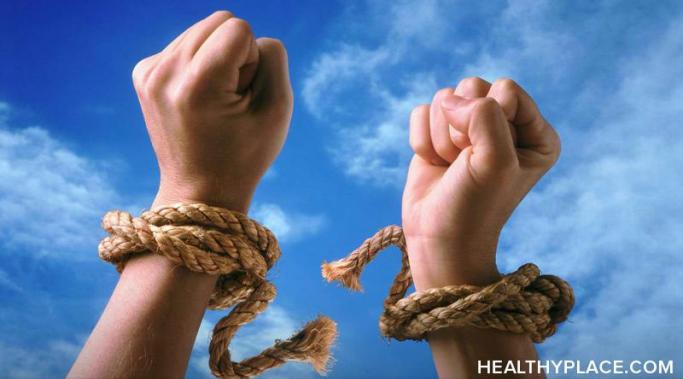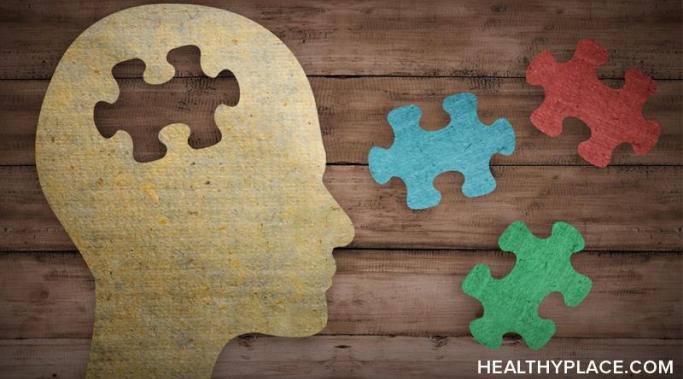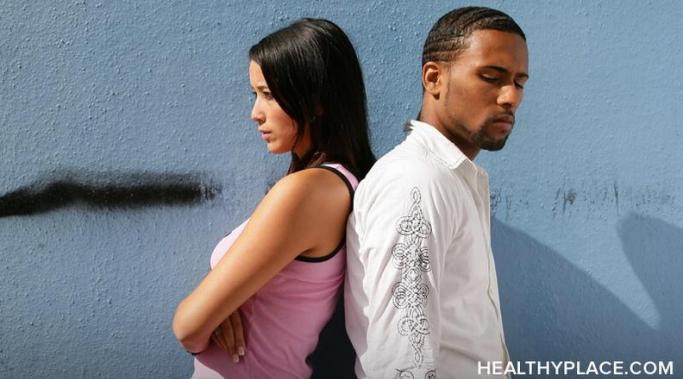I can't connect with people anymore. There are so many people in my life who I love so dearly, but lately, I haven't been able to feel connected to them in any meaningful way. Even though part of my brain is telling me that something is horribly wrong with me because I can't connect with others, I think this may actually be affecting lots of other people in recovery. So I think we should talk about some of the real reasons why I can't connect with people right now.
Recovering Relationships
What is the aftermath of toxic relationships? In general, I am a positive person who can see the good in people, but I recently went through a tough situation with a person that left me questioning how I cope with stress and handle social interactions. This person is no longer around me but this situation has had a big impact on my life. I want to share the things that I've learned.
No one wants to see their child develop mental health issues or suffer in any way. Oftentimes parents with mental Illness are asked if we fear we'll pass our illness down to our children. I've always thought there are worse things to fear. Still, I can't ignore genetics, and I know my daughter is at a higher risk of developing a mental illness because I have schizoaffective disorder. So I wonder, is there a way to try to prevent it from happening? Or is my time better spent preparing her for the possibility?
Last week was National Crime Victims Rights Week, and while at a rally, someone gave me a pamphlet on domestic violence issues in the lesbian, gay, bisexaul, transgender, queer (LGBTQ) community. While domestic violence can affect anyone and can take many forms, the unique forms of domestic violence in the LGBTQ community are rarely discussed. I will focus on three types of domestic violence issues: strict gender roles, access to safe places, and threat of "outing" without consent.
Attention 32 million families of the Ashley Madison hack: a cheating partner is not your fault. Josh Duggar, the former head of an anti-gay hate group that preaches "family values" is a sex addict who is making it out to be his wife's fault that he cheated on her. His words, not mine.
According to a New York Daily News article, "there will be some suggestion of whether or not she should have been more aware of the pressures Josh was under, of the issues he was facing, and how she could have better counseled him or helped him." Divorce "is not even something that will be discussed."
It's unknown if these are her words or her husband's words. Either way, these words reveal the lie that the victim is somehow to blame for abuse--and treating your partner as part of a harem and blaming him or her for it--is domestic abuse. Maybe you're feeling this way because you're one of the 32 million stories of adultery exposed by the Ashley Madison hack. The fault lies with the cheater, not you. Abuse is not your fault.
Unfortunately, abused people often believe certain lies. No one wakes up one day and says, "I think I'll fall in love with an abusive person." Many people in abusive relationships report that there was no violence until the relationship was well-established. At this point, conflicting emotions come into play--and emotions can be powerful and confusing. The fact that abused people believe lies makes the situation even more complicated. Here are three lies abused people believe.
Feeling misunderstood is one of the most difficult and painful things for people with mental illness. It’s difficult for most everyone, but sometimes our mental illness can make the misunderstanding even more complicated and can even contribute to mental health stigma. Has it ever happened to you? Some event transpires and you are clearly misunderstood by another person, or a group of people? Have you experienced a misunderstanding that has contributed to mental health stigma?
I am in the interesting position of being both a family member of a mentally ill person and being mentally ill myself. It sometimes gives me a unique understanding into both sides of the issues that can arise between the ill person and their family members.
When should the symptom-induced guilt and shame end and responsibility in mental illness begin? Chris T. (actual person, name changed) has been diagnosed with bipolar disorder. One of the ways his bipolar manifests is hypersexuality. This symptom drives Chris to act out sexually. He's a married man and over the years has had two extramarital relationships. He has come perilously close on more than one occasion to losing his entire family. Chris feels guilt and shame. He doesn't deny responsibility in his mental illness, but his wife is torn apart because of his actions.
I thought of three reasons why it's hard to have a romantic relationship when you have a mental illness. Three? Perhaps 100 reasons is more realistic. 100 reasons sound about right, but then this post would feel like reading a bad romance novel. That said, I want to focus on the biggest reasons why romantic relationships with mental illness are so difficult and how they connect to the smaller reasons--like a web of very bad dates.









